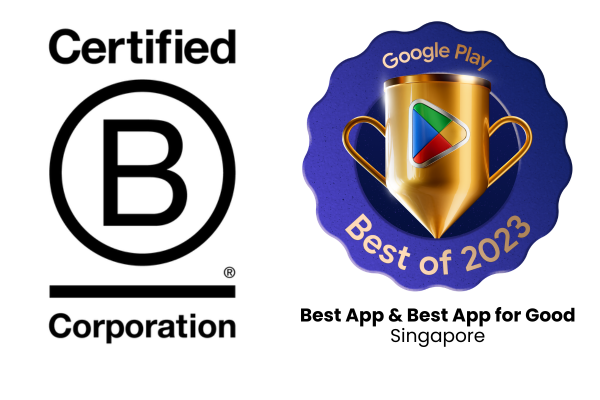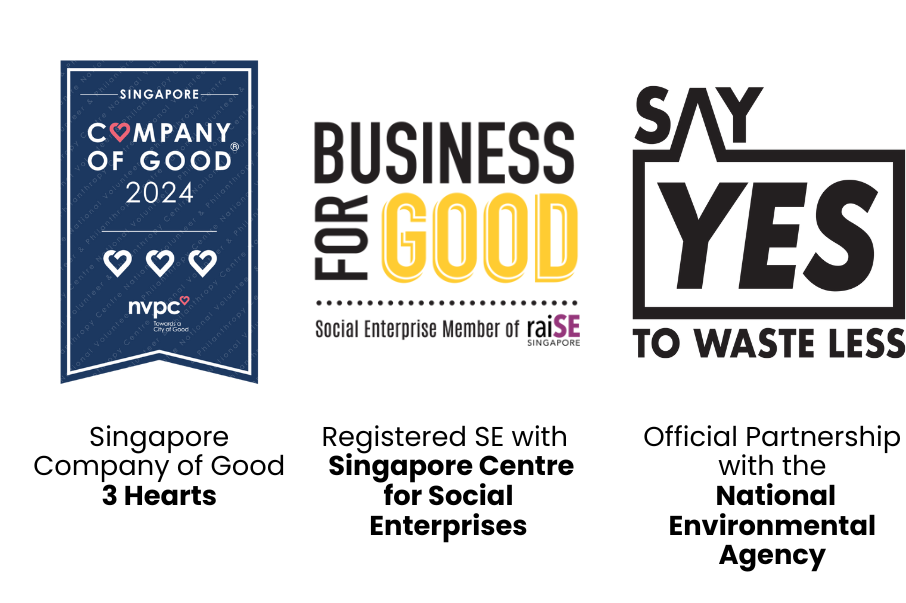In today’s landscape of corporate social responsibility (CSR), businesses are more cognisant of the need to contribute positively to improving society and the environment via various community efforts. Research has found that 73% of investors commit to companies that holistically advocate for environmental and social justice, while companies with CSR initiatives tend to attract purchases from 77% of consumers. However, just having the traditional focus of CSR on philanthropy and sustainable practices is not enough. Beyond CSR and profit-making as metrics of success, there is a growing realisation that employee and community well-being are also crucial components that should not be overlooked within organisations’ scope of responsibility.
Read on to learn more about the importance of employee and community well-being, why organisations should move beyond CSR to improve mental wellness and how they can do so with the help of BRB Selfcare and susGain.
Significance of Employee Well-Being
The corporate world has witnessed a paradigm shift in the changing dynamics of responsibility. Outside the conventional framework of CSR lies a more comprehensive approach which integrates employee wellness and community welfare. Businesses are also recognising that positive societal impact encompasses more than mere financial donations and environmental initiatives. Thus, well-being emerges not just as a moral obligation to be altruistic, but also as a strategic imperative for success.
Ensuring employee well-being contributes to sustainable growth in companies through increased productivity, talent retention and talent attraction.
- Higher Productivity
A survey by Gallup revealed that company profitability increases by 21% when employees are happier and more engaged. The Journal of Occupational and Environmental Medicine also found employee well-being boosts productivity by 23% with better mental health support. Therefore, improving employee well-being inspires a more vibrant and efficient workforce that rewards the company from a business perspective.
- Higher Productivity
 Higher Talent Retention
Higher Talent Retention
A study from the International Journal of Workplace Health Management showed extensive well-being programmes helped lower absenteeism rates by 27%. By having purposeful measures to enhance emotional wellness, employees’ needs and interests are valued. This incentivises them to perform better due to higher job satisfaction and reduced burnout rates. Companies with such motivated employees observe 59% lower turnover rates compared to those with more disengaged employees. Overall, greater employee well-being encourages passionate employees and facilitates talent retention in the long run.
- Higher Talent Attraction
When making employment decisions, almost 54% of Generation Z youth and 58% of Millennials believe company wellness programmes are essential. Hence, businesses that focus on employee well-being within their core values become more attractive to potential talent. Wellness initiatives can lower cost savings on healthcare and facilitate a supportive work environment. These make businesses appealing to skilled professionals seeking fulfilment in their work, which benefits talent attraction.
- Higher Talent Attraction
Importance of Community Well-Being
Aside from employee well-being, community welfare also plays a significant role in business success.

Local communities can impact organisations by nurturing a highly skilled workforce that fosters collaboration and innovation. Likewise, organisations can cultivate well-being by developing partnerships and capacity-building activities to uplift communities. One way would be to empower disadvantaged families by imparting industry expertise or collaborate with local authorities to improve community health with equipment and infrastructure.
By emphasising community well-being through active involvement in development projects, companies can strengthen their brand reputation. Leveraging on the interconnected relationship between companies and communities thus creates a platform for trust and mutual benefit.
As vital stakeholders, employees and communities can help forge shared value for businesses to succeed. Beyond CSR, it is important to incorporate their holistic well-being into the company ethos as it promotes a lasting culture of care and responsibility that fosters socially sustainable growth.
Improving Mental Wellness of Employees and Communities
Taking care of yourself is just as important as taking care of the environment. To address the increasingly relevant issue of mental wellness for employees and communities, susGain is proud to work with BRB Selfcare, who curated some dedicated micro learning modules on the susGain app. Participate in the two challenges ‘Understanding Anxiety‘ and ‘Simple Self-Care Techniques at Work‘, where you can get tips from experienced certified therapists, and earn points for completing them! You can then use these points to redeem any of our three impact rewards – planting a tree, donating a meal or removing trash from the ocean.

As a trusted mental wellness partner, BRB Selfcare provides training programmes and expert-led workshops for corporates. They also have therapy support, blog resources and holistic wellness events to enhance the accessibility of mental healthcare services.
Meanwhile, susGain promotes sustainable and healthy living among employees and community members by organising customised engagement campaigns on the app, tailored to the organisation’s CSR strategy.

susGain helps you follow through with your good intentions, simply by incorporating little sustainable habits into your daily life.
Looking to organise a customised community challenge for your company, school or club and measure the collective impact created? Reach out to us at contact@susgain.com to find out more!



